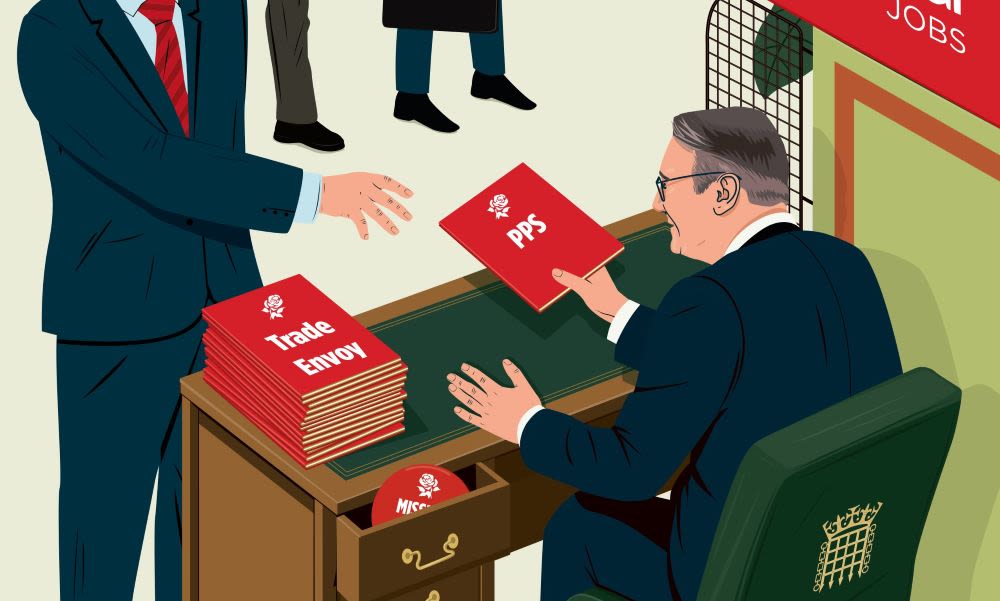Keir Starmer, leader of the opposition and head of the Labour Party, has often been criticized for his perceived lack of personal engagement with his MPs. Yet, despite this reputation, he has shown adeptness in maintaining an efficiently functioning and unified parliamentary party through strategic job creation for backbenchers. This strategic maneuver has not only kept a burgeoning parliamentary bloc occupied but also illustrated a commitment to broadening the party’s influence and reach across various sectors.
Strategic Job Creation and Party Cohesion
At the heart of Starmer’s strategy is a robust job creation scheme tailored for Labour backbenchers. The initiative serves as a clever tactic to keep MPs engaged, busy, and, crucially, aligned with party objectives. With a significant number of roles available, from unpaid parliamentary private secretaries (PPSs) to newly devised mission champions, there are ample opportunities for MPs to be involved actively in party and parliamentary duties.
These roles serve several functions: aiding time-poor ministers, acting as talent pipelines, and maintaining the unity and discipline historically seen among Labour ranks. The appointments are part of a broader arsenal Starmer uses to manage his party, with carrots such as photo opportunities at Downing Street complementing the classic stick approach of a stringent whipping operation.
Expanding Powers of Patronage
The most prominent tool in Starmer’s arsenal is the appointment of parliamentary private secretaries (PPSs). These individuals are crucial in extending party loyalty to the government front benches. Dedicated as unpaid assistants to ministers, PPSs are bound to support government policies, acting as intermediaries and messengers between ministers and backbenchers.
PPSs hold their positions by maintaining party discipline, and their numbers have been strategically increased to diversify talent and prevent any singular concentration of power within London-centric political operations. The current roster sees 43 PPSs spread across various departments, serving as the eyes and ears on the ground and feeding back vital feedback to the party leadership.
The Role of Mission Champions
To further ensure involvement across party ranks, Starmer’s administration has introduced the role of mission champions, which is given to MPs tasked with advocating particular national missions, like crime or health. These positions allow MPs to partake in cross-departmental initiatives and engage in policy discussions at a more profound level.
This move not only offers MPs a chance to develop policy ideas and get involved in governance without climbing the typical ministerial ladder but also acts as a grooming ground for future leadership within the party. Mission champions are considered a prestigious role featuring more informal dialogue and influence than some more traditional roles.
Backbench Engagement and Influence
Starmer’s strategic expansion of roles within the parliamentary party ensures that every MP feels valued and integral to Labour’s operations. With an emphasis on regional representation and diversity, the roles offered encourage MPs to engage with local communities and effectively represent them at the national level. These roles are also mechanisms to keep MPs preoccupied and reduce potential dissent or restlessness amongst backbenchers.
Moreover, the roles encourage constructive participation, ensuring MPs feel connected to significant policy decisions, thereby reducing the likelihood of rebellious factions forming within the party. They empower MPs to act as advocates within their regions, bringing issues directly from the grassroots to the attention of high-level decision-makers.
Through these measures, Keir Starmer has adeptly maintained a delicate balance within the Labour Party, utilizing job creation schemes to consolidate loyalty and instill a sense of purpose and commitment among MPs. In an era where political dynamics are constantly shifting, his approach represents a blend of traditional party discipline with innovative methods to adapt to contemporary challenges.
